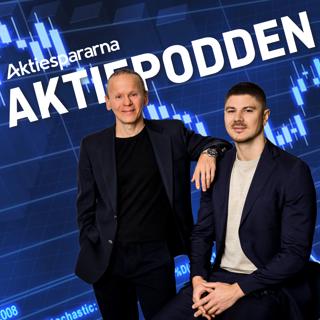
The Lip Bar (TLB): Melissa Butler (2020)
While working long hours as a Wall Street analyst, Melissa Butler started making lipstick in her kitchen as a hobby. But it soon turned into an obsession, costing thousands of dollars. She was frustrated by the lack of diversity in the cosmetics industry, and as a Black woman, wanted to create lipstick colors that complimented her complexion and style. So in 2010, she launched The Lip Bar, with bold colors like green and purple, and boozy names like "Cosmo" and "Sour Apple Martini." Undeterred by a disastrous appearance on Shark Tank with her partner Rosco Spears, Melissa was motivated to pitch her lipstick to Target, and in 2016, launched a new color on Target's online store. Today, The Lip Bar—rebranded in 2021 as TLB—has expanded to stores nationwide and is now the largest Black-owned makeup brand sold in Target stores.This episode was produced by James Delahoussaye, with music by Ramtin Arablouei.Edited by Neva Grant, with research help from Daryth Gayles.You can follow HIBT on Twitter & Instagram, and email us at hibt@id.wondery.com.See Privacy Policy at https://art19.com/privacy and California Privacy Notice at https://art19.com/privacy#do-not-sell-my-info.
3 Juli 20231h 11min

Reimagining seafood production with Aryé Elfenbein and Justin Kolbeck of Wildtype (2022)
When Aryé Elfenbein and Justin Kolbeck met in 2011, they had no intention of starting a business. Aryé was a cardiologist, and Justin was a diplomat who had lived in countries all over the world. But their chance meeting at a dinner party led to a deep friendship focused on working together to change the world. Through regular Saturday morning brainstorming sessions, they settled on pursuing a scientific approach to growing meat for human consumption.This week on How I Built This Lab, Aryé and Justin discuss the problems with modern seafood production and how their company, Wildtype, hopes to revolutionize the industry by using stem cells to cultivate real, sushi-grade salmon... without harming any actual fish.This episode was produced by Chris Maccini and edited by John Isabella, with music by Ramtin Arablouei. Our audio engineer was Maggie Luthar.You can follow HIBT on Twitter & Instagram, and email us at hibt@id.wondery.com.See Privacy Policy at https://art19.com/privacy and California Privacy Notice at https://art19.com/privacy#do-not-sell-my-info.
29 Juni 202342min

Dutch Bros. Coffee: Travis Boersma
From a coffee cart parked uneasily in a grocery parking lot, Travis and Dane Boersma grew Dutch Bros into a sprawling chain of 700-plus beverage restaurants. Before they got started in Grants Pass, Oregon, in 1992, Dane had never tried espresso, and neither brother knew how to make it. But with the help of nearby experts, they learned the craft—and even improvised their own recipes, like mocha made with chocolate milk from a local dairy. Eventually, Dutch Bros would go from pushcarts to drive-throughs, and from small-town Oregon to Wall Street—with a nearly $500-million IPO in 2021. Along the way, the brothers’ special connection carried them through good times and bad, until an unexpected family tragedy shook the business to its core.This episode was produced by Alex Cheng, with music by Ramtin ArabloueiEdited by Neva Grant, with research help from Katherine Sypher.See Privacy Policy at https://art19.com/privacy and California Privacy Notice at https://art19.com/privacy#do-not-sell-my-info.
26 Juni 20231h 17min

Reinvesting in our cities with renewable energy with Donnel Baird of BlocPower (2022)
When Donnel Baird was a child, his parents would regularly use the oven to heat their Brooklyn apartment -- a dangerous and energy-inefficient practice that’s unfortunately not unique to New York City. As an adult traveling the country with the Obama for America campaign, Donnel saw countless homes and apartments wasting power and jeopardizing resident safety because of dated infrastructure. He founded BlocPower in 2014 to address this precise problem, focusing on low-income communities so often overlooked by innovative startups. This week on How I Built This Lab, Donnel talks with Guy about BlocPower’s work to modernize buildings nationwide and transition them to clean energy sources. BlocPower has raised more than $100 million from Wall Street and Silicon Valley investors, and has partnered with cities across the country to create greener, safer spaces for their residents.This episode was produced by Carla Esteves and edited by John Isabella, with music by Ramtin Arablouei. Our audio engineer was Neal Rauch.You can follow HIBT on Twitter & Instagram, and email us at hibt@id.wondery.com.See Privacy Policy at https://art19.com/privacy and California Privacy Notice at https://art19.com/privacy#do-not-sell-my-info.
22 Juni 202347min

Spikeball: Chris Ruder
When Chris Ruder set out to revive a ball-and-net game from his childhood, he was pretty sure he would fail. He wasn’t really into sports and had never run a business. But after 15 years, Spikeball has grown into a thriving brand with a global following. Spikeball is a two-on-two game where players hit a rubber ball onto a circular net. Invented in 1989, it never took off. But in 2003, when childhood friends dusted off a duct-taped set, Chris began daydreaming about bringing it back to life. For a few years, it was just a crazy idea, until Chris dug deeper and discovered it was never patented. Chris ran the business by himself for six years and discovered Spikeball was taking off with PE teachers and Christian youth groups. When he was offered a deal on Shark Tank, he turned it down because he didn’t want Spikeball to be marketed as a toy, and instead focused on growing it as a competitive sport. Now, the game is popular around the world and its international governing body has Olympic ambitions. This episode was produced by Chris Maccini, with music by Ramtin Arablouei. Edited by Neva Grant, with research help from Chris Maccini. You can follow HIBT on Twitter & Instagram, and email us at hibt@id.wondery.com.See Privacy Policy at https://art19.com/privacy and California Privacy Notice at https://art19.com/privacy#do-not-sell-my-info.
19 Juni 20231h 9min

Saving the f#$%ing rainforests with Shara Ticku of C16 Biosciences
Palm oil is a wonder ingredient, used in almost everything from toothpaste and oat milk to biodiesel and laundry detergent. But to keep pace with rising global demand, producers have burned down millions of acres of rainforests to create more palm oil plantations, worsening climate change and making the air hazardous for entire countries in the process. C16 Biosciences has a plan to save those rainforests – and to shake up the behemoth palm oil industry while doing it. Since founding the company in 2018, Shara Ticku and her co-founders have cracked the code on its first beauty product made with lab-generated palm oil. And once they brought it to market? It sold out immediately!This week on How I Built This Lab, Shara talks to Guy about how introducing C16’s initial product to a secondary market laid the foundation for even greater commercial success. Plus, Shara shares how a tight budget, scrappy science, and home-brewed beer were the keys to unlocking substantial funding.This episode was produced by Carla Esteves and edited by John Isabella, with music by Ramtin Arablouei. Our audio engineer was Katherine Silva.You can follow HIBT on Twitter & Instagram, and email us at hibt@id.wondery.com.See Privacy Policy at https://art19.com/privacy and California Privacy Notice at https://art19.com/privacy#do-not-sell-my-info.
15 Juni 202342min

Harry’s Razors: Andy Katz-Mayfield and Jeff Raider
Two college-era friends set out to change the face of shaving—and in the process, took on one of the biggest companies in the world. In 2011, Andy Katz-Mayfield and Jeff Raider realized they shared a common frustration with an everyday purchase: razors. Locked behind counters like diamond bracelets, they were inconvenient to buy and expensive to replace, with branding that seemed more suited to James Bond than a regular guy. So Andy and Jeff took on the Goliath of the shaving industry, Gillette—and its parent company, P&G—to launch a direct-to-consumer razor company with a friendly name. As a co-founder of Warby Parker, Jeff had some experience with D-to-C, but nothing prepared either founder for the rigors of razor research, and the culture shock of partnering with a factory in a remote part of Germany. After weathering a failed merger, Harry’s Inc. has grown into a force in the shaving industry both online and in-store, and has begun expanding into other household products. This episode was produced by Liz Metzger, with music by Ramtin ArabloueiEdited by Neva Grant, with research help from Katherine Sypher.You can follow HIBT on Twitter & Instagram, and email us at hibt@id.wondery.com.See Privacy Policy at https://art19.com/privacy and California Privacy Notice at https://art19.com/privacy#do-not-sell-my-info.
12 Juni 20231h 13min

Tapping the heat beneath your feet with Kathy Hannun of Dandelion Energy
Millions of American households rely on oil for heat. Growing up in New Hampshire, Kathy Hannun was familiar with this decades-old and environmentally-taxing approach. As part of Google’s innovation lab, X, she began unearthing a solution — indeed from underground...This week on How I Built This Lab, Kathy discusses how her company, Dandelion Energy, has made geothermal energy accessible for heating and cooling homes across the northeastern United States. Plus, Kathy explains why widespread adoption of geothermal heat pumps is important if we want to reach our climate goals.This episode was produced by Sam Paulson and edited by Casey Herman, with music by Ramtin Arablouei. Our audio engineer was Katherine Silva.You can follow HIBT on Twitter & Instagram, and email us at hibt@id.wondery.com.See Privacy Policy at https://art19.com/privacy and California Privacy Notice at https://art19.com/privacy#do-not-sell-my-info.
8 Juni 202331min





















